Anne McCue looks a bit like the Mad Hatter as she takes the stage at Nashville’s 5 Spot, wearing a red felt topper and colorful silk crimson-and-flowers jacket. It’s a visual cue for what’s coming next: an exquisitely performed show of original psychedelic songs that set the controls for the heart of 1967, when the holiest temple of the psychedelic era was being constructed by Pink Floyd and the Beatles. But the music is new—from McCue’s album Wholly Roller Coaster—and it is a wild ride, bounding between past and present, transportive and allusive. Despite its obvious roots, it feels remarkably original and contemporary, thanks to the gentility of McCue’s relaxed, virtuosic playing and singing, and a dappling of pop, rock, and folk flavors from the pre- and post-lysergic days that inform the swirling melodies and strong-boned harmonies, and guitar solos that could as easily be sung as played. The results are something like a paisley rainbow in sound—bright, colorful, trippy, and entirely pleasing, even when the lyrics turn a bit dark.
“I try to approach the guitar differently, more like a piano, which has a broad palette and colors and textures, and I really focus on melody and harmony,” McCue says. “I don’t try to come up with riffs and licks that are classically guitar. I love that, but when I was learning guitar, I was learning more complicated chords than I-IV-V. As a child I was a huge Beatles fan, and their arrangements were really quite sophisticated.”
The Loneliest Saturday Night - Anne McCue & The Cubists
“The Loneliest Saturday Night” is the first single from Anne McCue and the Cubists new album, Wholly Roller Coaster.
Early on, McCue shared a nylon-string with her siblings and, later, taught herself on an SG copy one of her brothers brought home. She delved into the Reader’s Digest Treasury of Best Loved Songs, from her parents’ bookshelf. “It had the most beautiful songs, from the jazz era all the way up to Burt Bacharach. I learned all the jazz chords, and the major sevenths and minor sevenths—more complicated chords than most people start with.”
For McCue, who grew up in a small town outside of Sydney, Australia, her modernist take on the era of incense and peppermints is the latest stop in the musical Gulf Stream that she’s navigated. Buoyed by other canonical influences, from Ennio Morricone and Alfred Hitchcock soundtracks to the sophisticated guitar-pop of XTC, she has chased her muse from Melbourne blues jams to Ho Chi Minh City, where she played solo jazz and blues guitar at a hotel for a year. A return to Australia in turn led her to Los Angeles, following a lead from a friend about a band on the verge of breaking out that was looking for a female guitarist who could sing harmony. That group’s record deal and a subsequent solo contact both fizzled. But she moved to Nashville in 2007 on the advice of her manager, and found a home in the creative music hotbed of East Nashville.
“When I was learning guitar, I was learning more complicated chords than I-IV-V.”
Allowing the influence of the Western movies, like the classic High Noon, and her early country music heroes—most notably Johnny Cash—that she loved as a kid to pervade her songwriting, McCue dived into the currents of Americana and developed an international reputation over the course of seven albums, including the powerful Roll. That recording ranges over a variety of roots terrain, from the fingerpicked, elegiac “Ballad of an Outlaw Woman” to a boldly reharmonized, ripping cover of Jimi Hendrix’s “Machine Gun” to the album’s most harrowing song, “Hangman,” about a lynching, driven by the raw, ghostly tones of her lap steel. The BBC’s influential DJ Bob Harris chose Roll as his top album of 2004. Over the years she’s toured the U.S. and abroad, hosted the smartly eclectic radio show Songs on the Wire on Nashville’s indie radio station WNXA, produced other artists, and played on sessions, mostly for friends—including modern psychedelicist Robyn Hitchcock.
Anne McCue's Gear
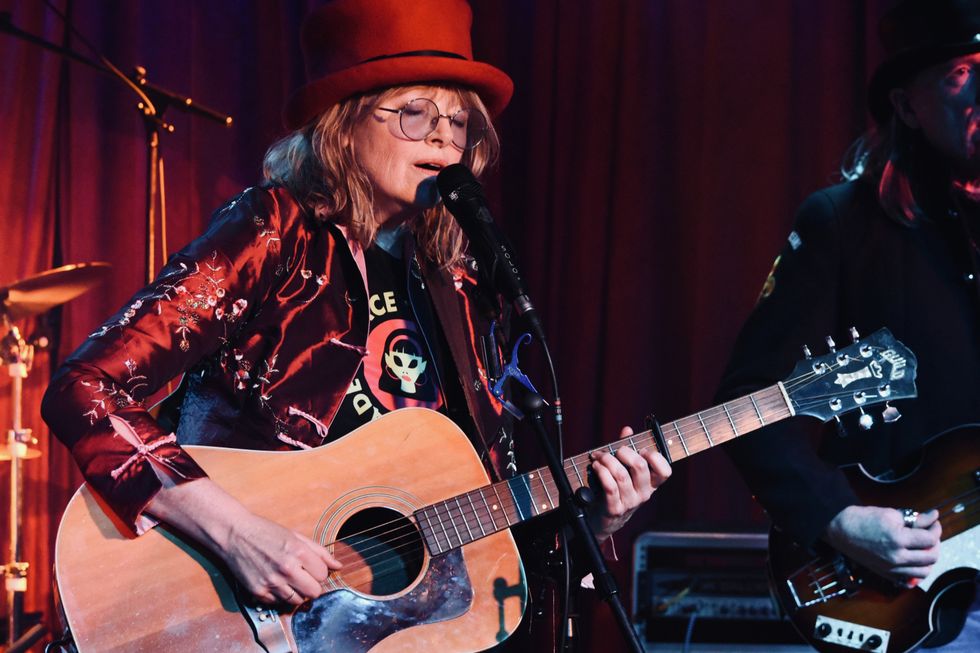
McCue’s acoustic is an old Guild dreadnought, captured with her here onstage at Nashville’s 5 Spot. It’s used as her primary instrument on “Witch Song?" and for sweetening elsewhere.
Photo by Jill Kettles
Guitars
Amps
- Fender Blues Junior
- Custom Jamison (15/30 watts switchable)
Recording Gear
- Pro Tools
- Royer 121 mic
- Mojave Audio MA-50, MA-100, MA-200, and MA-300 mics
- Focusrite interface
Effects
- Line 6 DL4
- Electro-Harmonix ML9
- Fulltone Distortion Pro
- JHS Morning Glory
- Danelectro Rocky Road
- Strymon Flint
- Dunlop Cry Baby
- Boss OC-5 Octave
- EBow
Strings, Slide, & Picks
- D’Addario (.010 and .011 sets)
- The Rock Slide
McCue met Hitchcock, a native Londoner who moved to Nashville in 2015, when she produced an EP for Emma Swift, his wife, and Hitchcock invited McCue to be his guitar foil on 2017’s Robyn Hitchcock. Hitchcock, who came to fame as the leader of the Soft Boys, can be glibly described as a sane version of his idol Syd Barrett, the original Pink Floyd frontman and the guiding hand behind the Floyd’s marvelously playful and boldly psychedelic debut album, Piper at the Gates of Dawn.
“He didn’t want lead guitar on the album,” McCue explains. “He wanted two guitars working together, so it was more about riffs that would fit with what he was playing. I went around to his house and we played, to try out things, before we went into the studio.” The result is a guitar conversation as literate and bristlingly playful as Hitchcock’s always-clever lyrics.
“I wanted to make a record that made people feel like they were stoned without actually having to work hard.”
That planted the psilocybin seeds of a new musical direction, but they really sprouted during the pandemic, when Pink Floyd became an important and soul-buoying part of McCue’s musical diet. “The pandemic gave me a chance to get off the treadmill of everyday existence,” she relates. “One day, I listened to the first seven Pink Floyd albums [including early live recordings] and never even got to Dark Side of the Moon. It was an epiphany. I listened to Pink Floyd and XTC for days and days and days. It took me out of a long gray tunnel into an open space, and I hear that space in the music.”
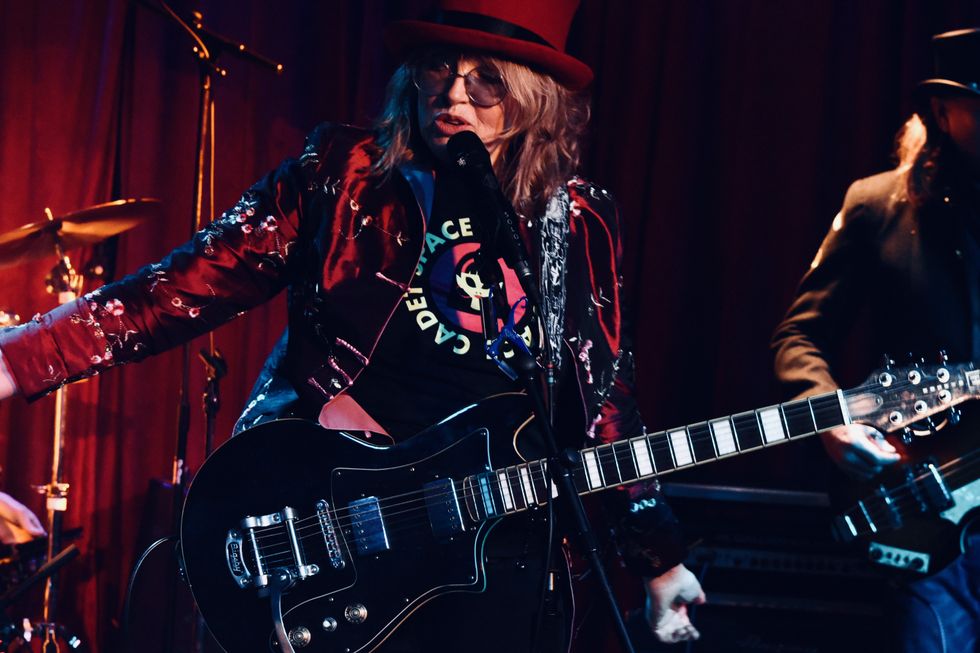
When she began playing guitar, McCue didn’t initially encounter the good ol’ I-IV-V. “I learned all the jazz chords, and the major sevenths and minor sevenths—more complicated chords than most people start with,” she says.
Photo by Jill Kettles
Which is only right, because, as Sun Ra declared, “Space is the place.” It breathes life into Wholly Roller Coaster, which McCue crafted with her band, the Cubists—although McCue played guitars, bass, keys, percussion, bouzouki, and electric sitar (which opens the album, with the gently hallucinogenic “Fly or Fall”) herself, at her home studio, Flying Machine. Even when contemplating the quirky nature of humanity in “Leaping on the Moon,” which has a soaring EBow finale, her lyrics possess grace and empathy—the latter another element that taps the spirit of Pink Floyd’s less acerbic work. And her often-playful rhyming swims in the same channel as Barrett and Hitchcock. By the time the album ends with “The Years,” which offers a backwards guitar solo in the middle of its observations on the passage of a lifetime, a repast richer than “Alan’s Psychedelic Breakfast” has been served.
“There’s a comforting, expansive, and inspiring space to get into,” McCue says. “I wanted to make a record that made people feel like they were stoned without actually having to work hard … so you could get lost in the sound.” And want to stay lost, for a good, long while.
YouTube It
Anne McCue & the Cubists recently filmed McCue’s “Witch Song” for NPR’s Tiny Desk Contest.


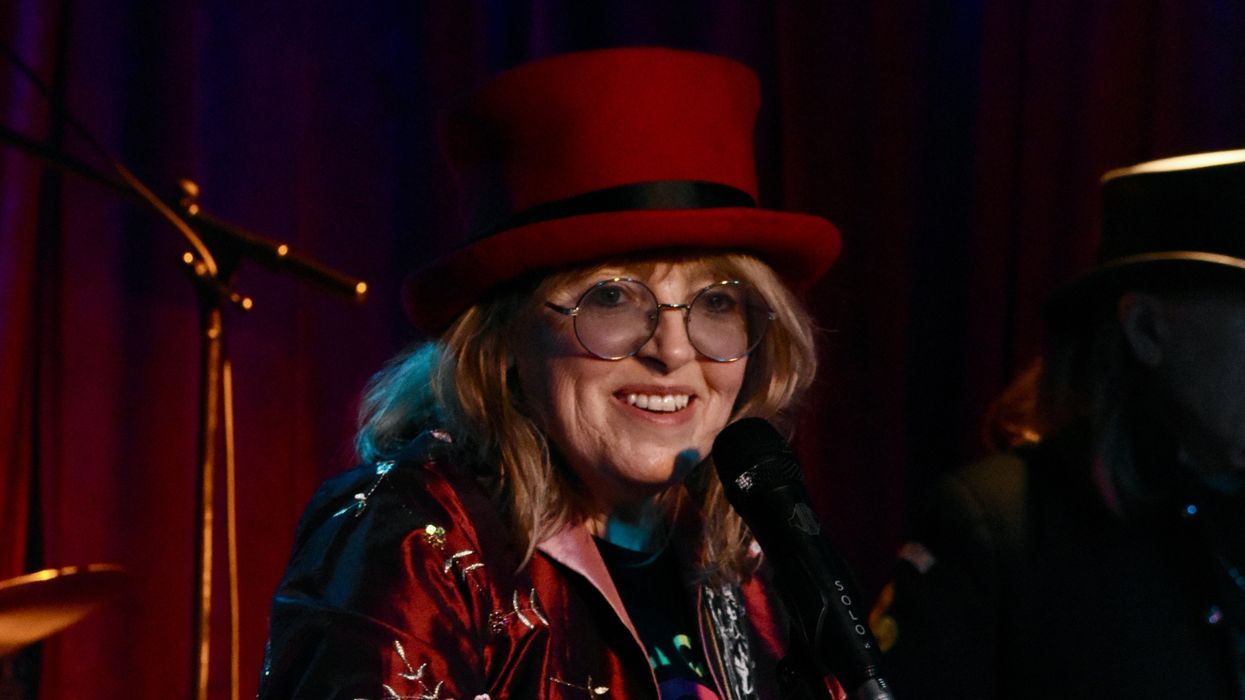






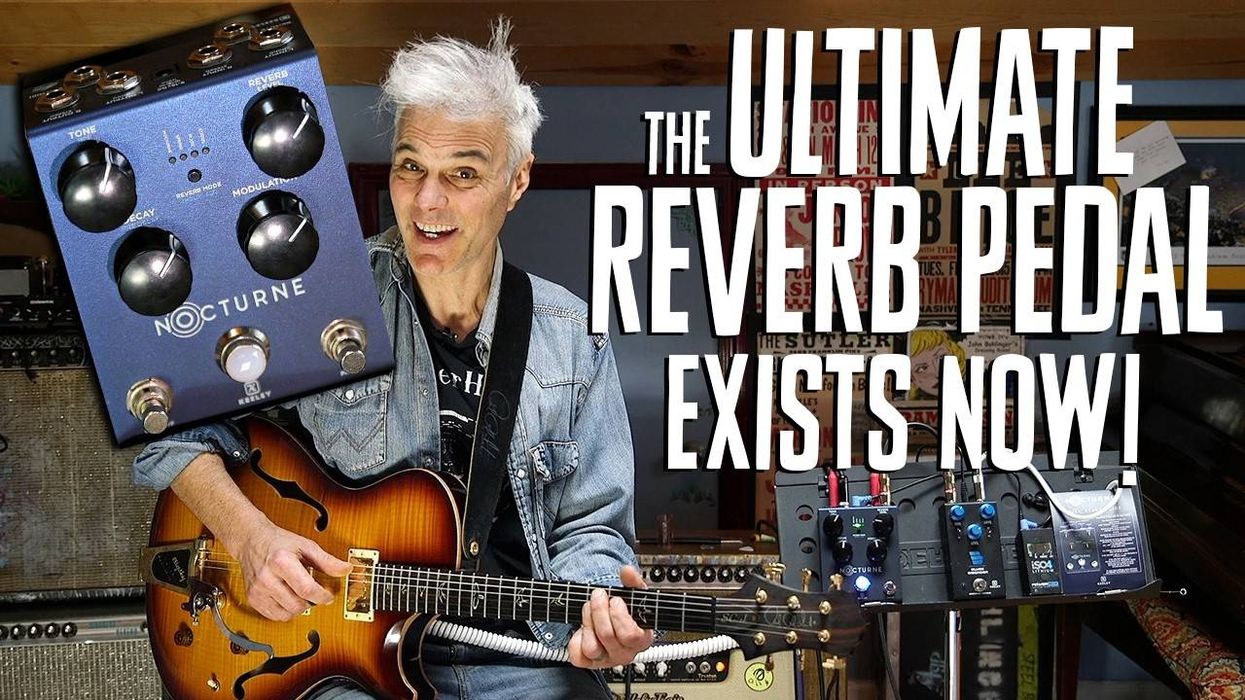

![Rig Rundown: Russian Circles’ Mike Sullivan [2025]](https://www.premierguitar.com/media-library/youtube.jpg?id=62303631&width=1245&height=700&quality=70&coordinates=0%2C0%2C0%2C0)
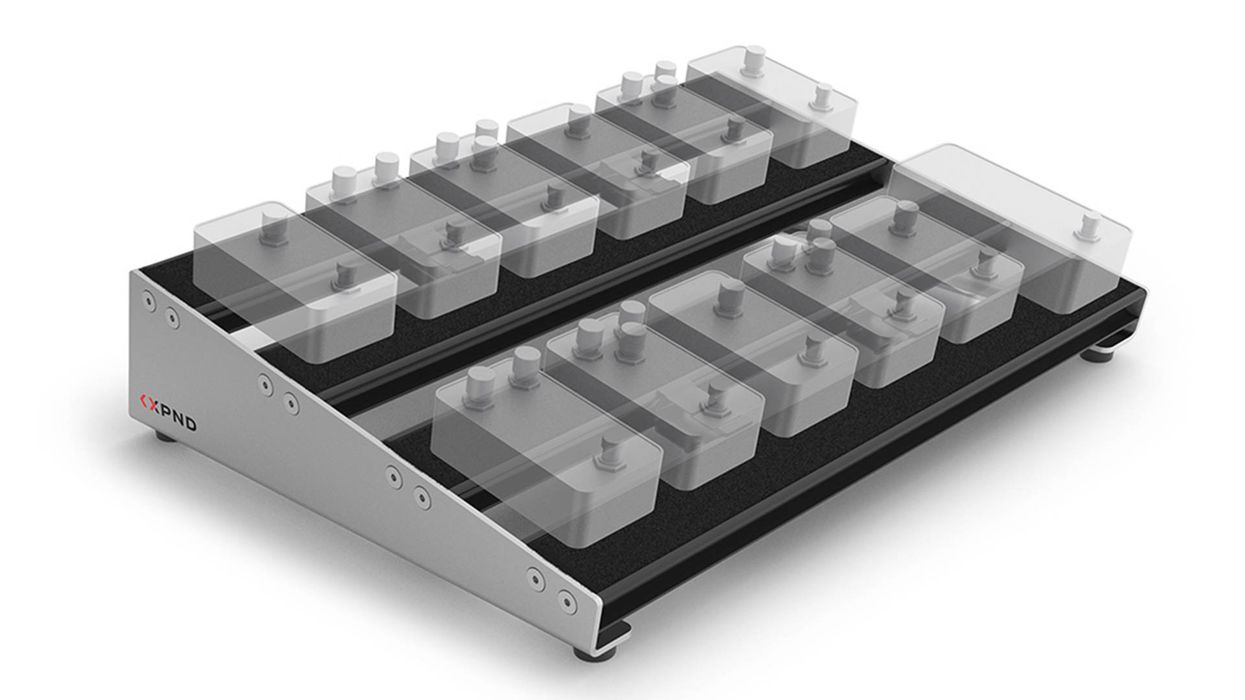




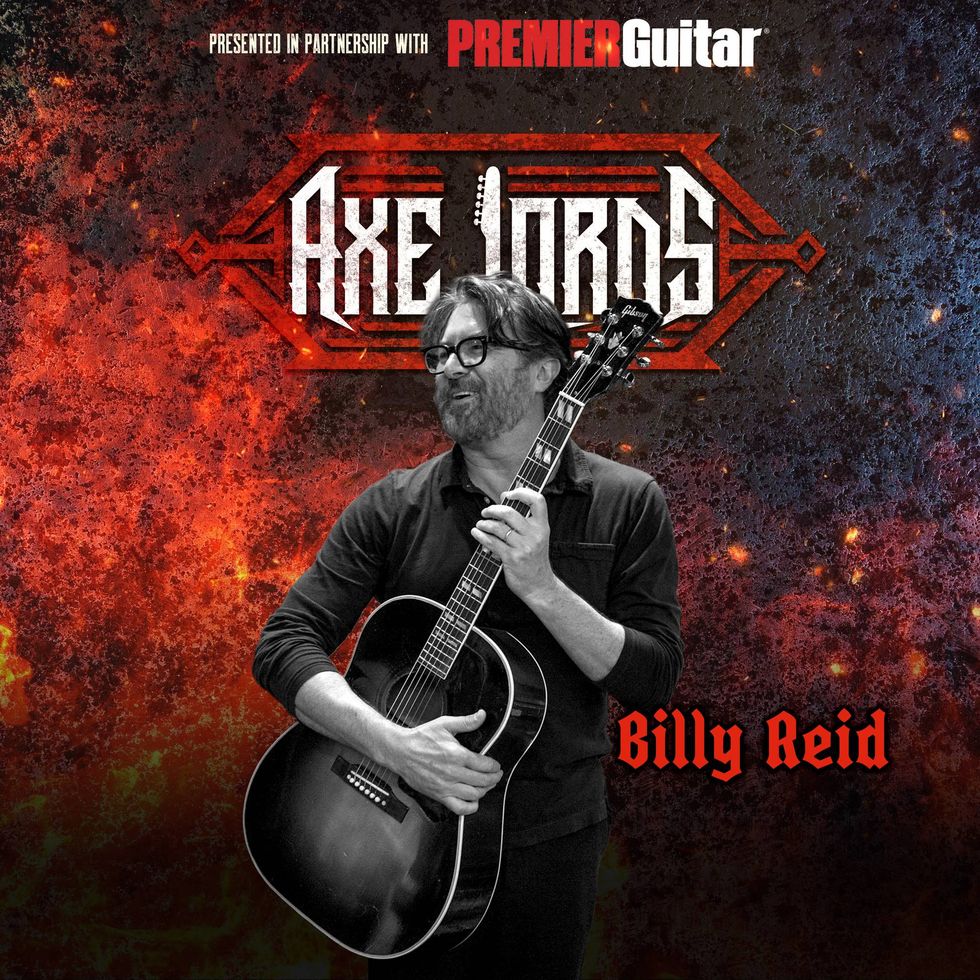
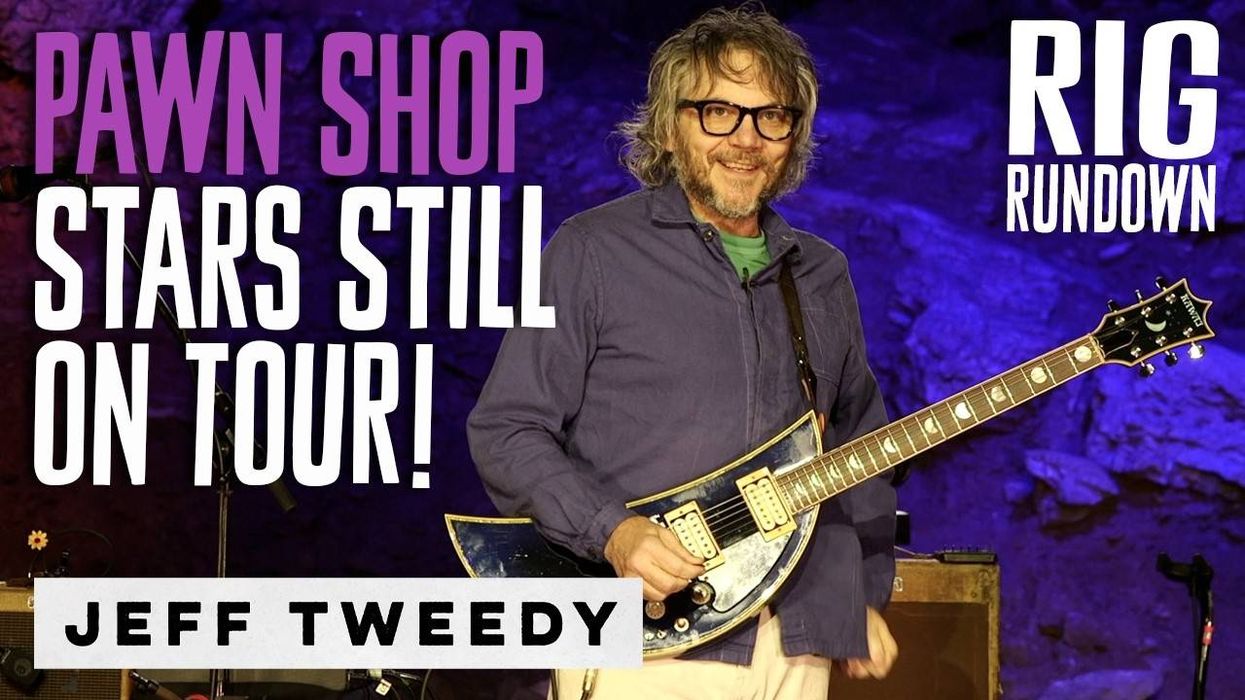
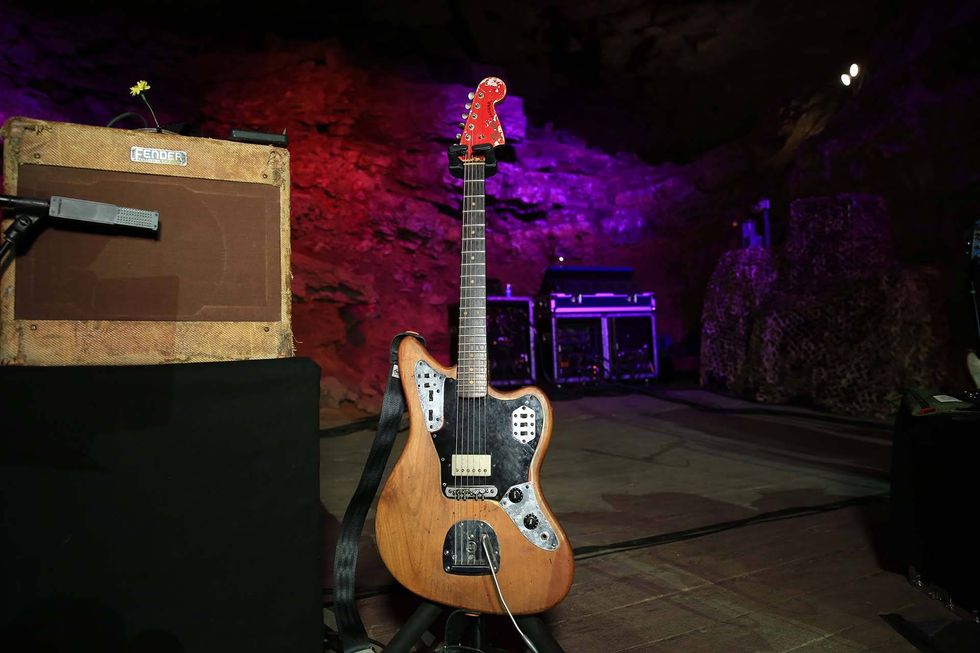
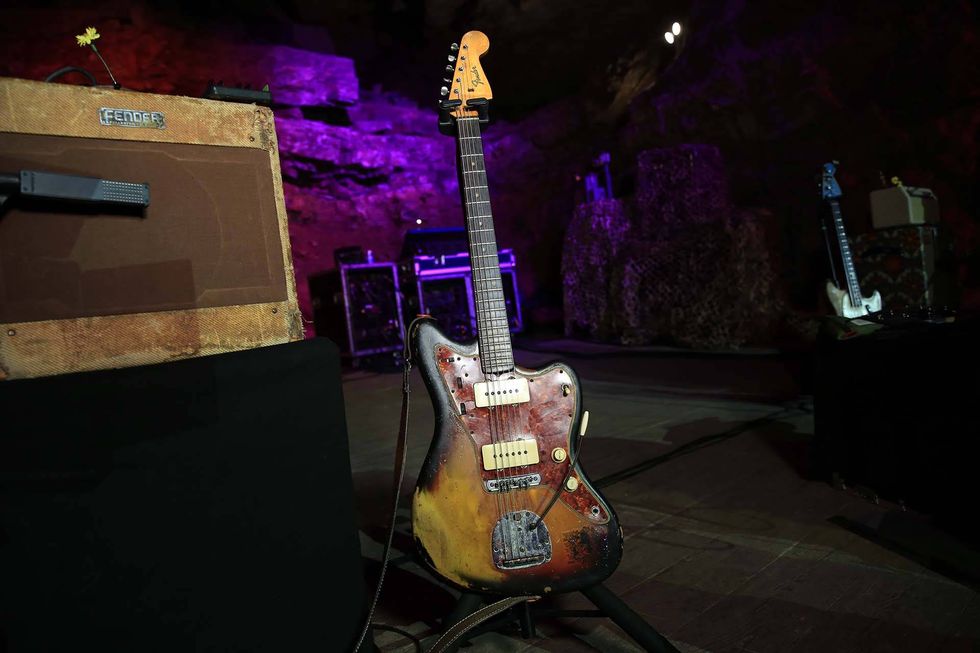
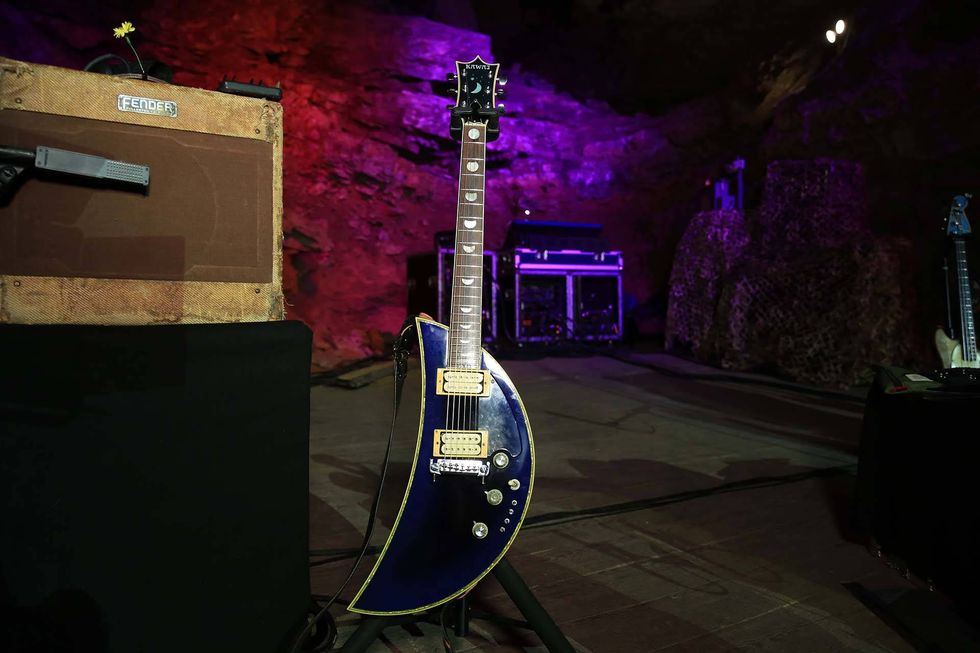
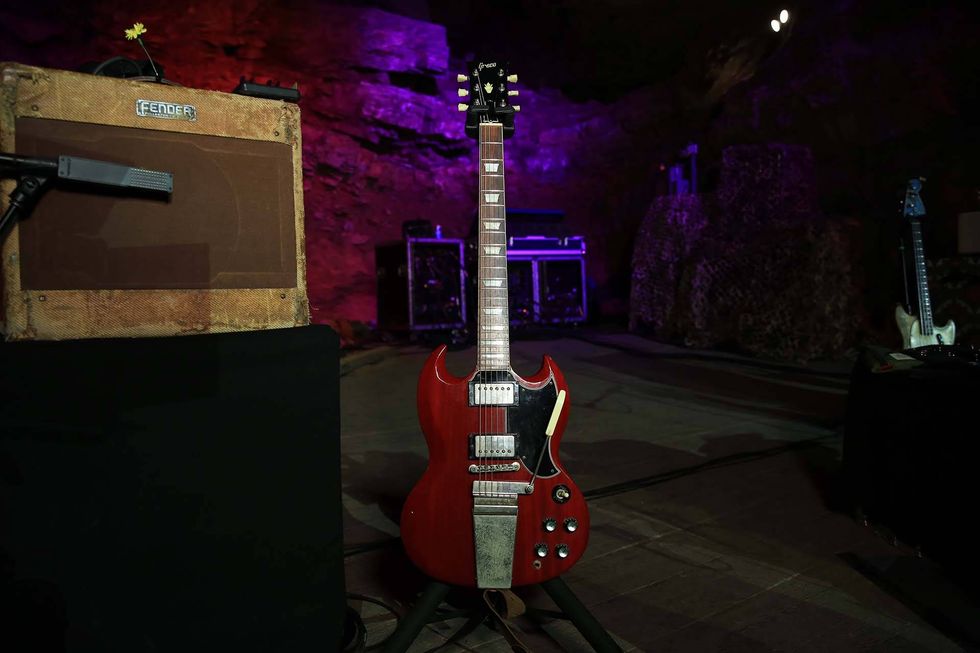
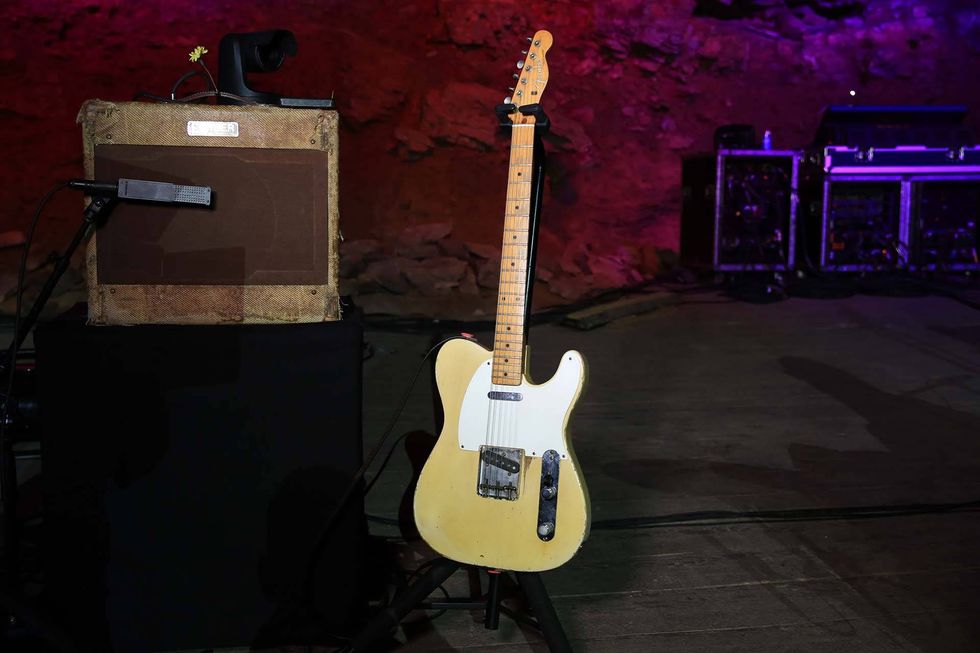
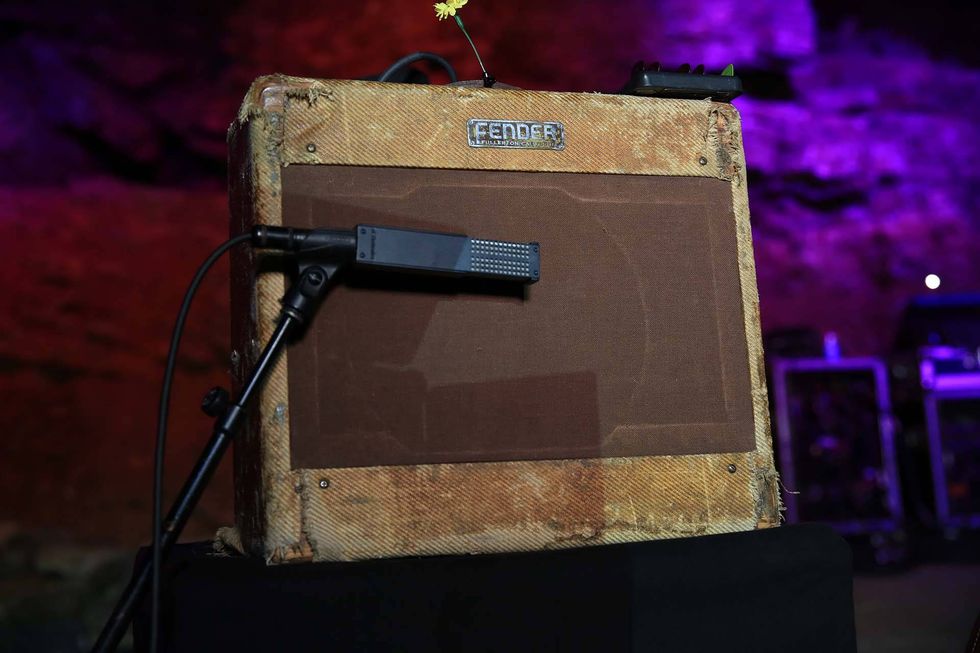
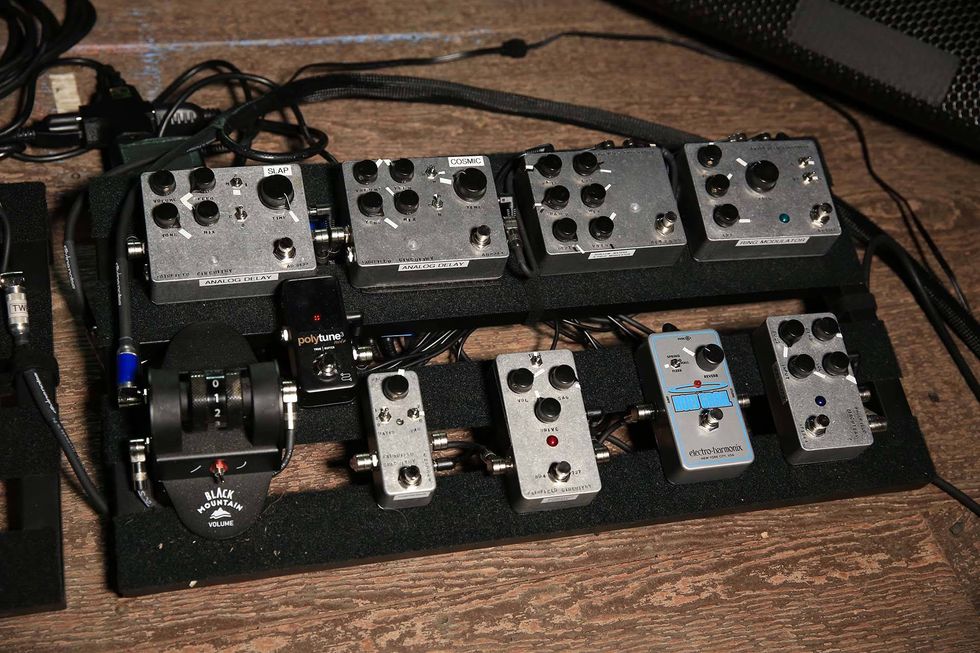
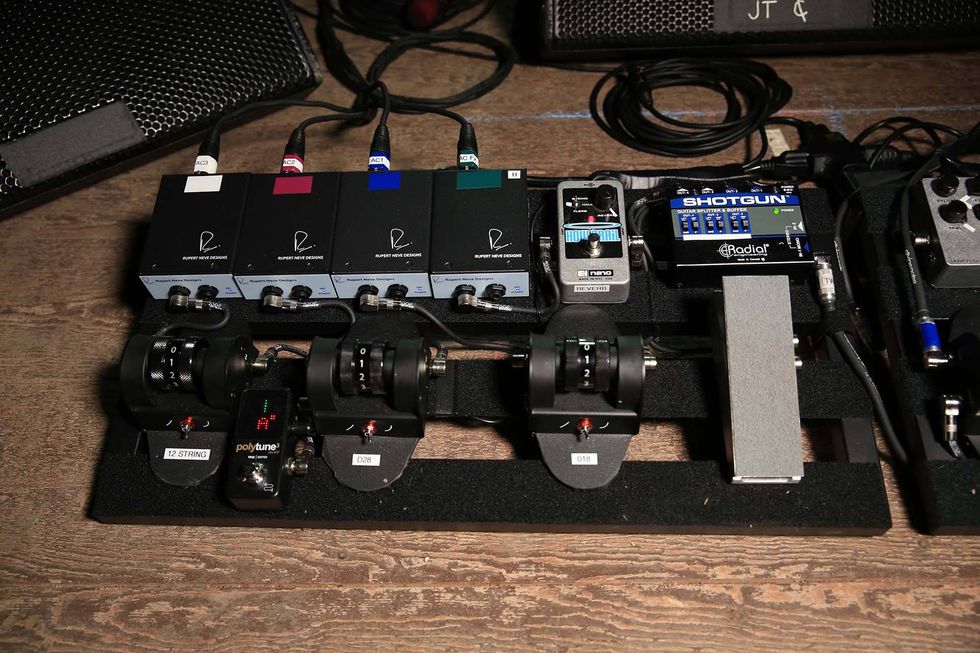

![Rig Rundown: AFI [2025]](https://www.premierguitar.com/media-library/youtube.jpg?id=62064741&width=1245&height=700&quality=70&coordinates=0%2C0%2C0%2C0)











